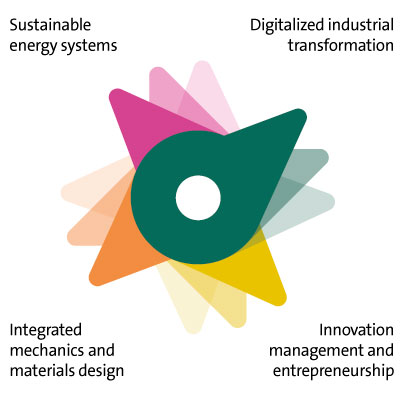IRIS – Born multidisciplinary
IRIS is an overall school initiative that enables researchers to work collaboratively across departments at the ITM school, and on joint research projects. With a holistic interdisciplinary perspective, we aim to enhance the impact of our research for more a sustainable industry and society.

The mission of the ITM school, as set out in our development plan is to lead the transition towards a zero-emission, adaptable industry for a sustainable society characterized by new product and service designs, new materials, new business models, sustainable energy systems, recycling, reuse and remanufacture.
KTH's quality assurance activity, the Research Assessment Exercise (RAE) in 2012, recognised that the ITM had strengths in many of these areas. The RAE exercise also recognised the opportunity for KTH to enhance its impact in these areas by cohering activities across departments.
This lead to the formation of the IRIS project in 2019. With a budget of 80 M SEK, this project is probably one of the largest single initiatives run by the ITM school.
The organisational structure of the IRIS project oganisational was designed to faciliate collaboration across departmental boundaries:
- The project is organised into research areas, each of which involve researchers from two or three departments.
- Each research area has two coordinators, from different departments.
Each IRIS area has its own research theme and the four IRIS areas are:
- Industrial transformation through sustainable digitalization
- Integrated mechanics, components and materials design, including additive manufacturing
- Sustainable energy systems, infrastructure and business
- Innovation and entrepreneurship ecosystems and infrastructure.
Within each area there are several projects researching on that area's theme.